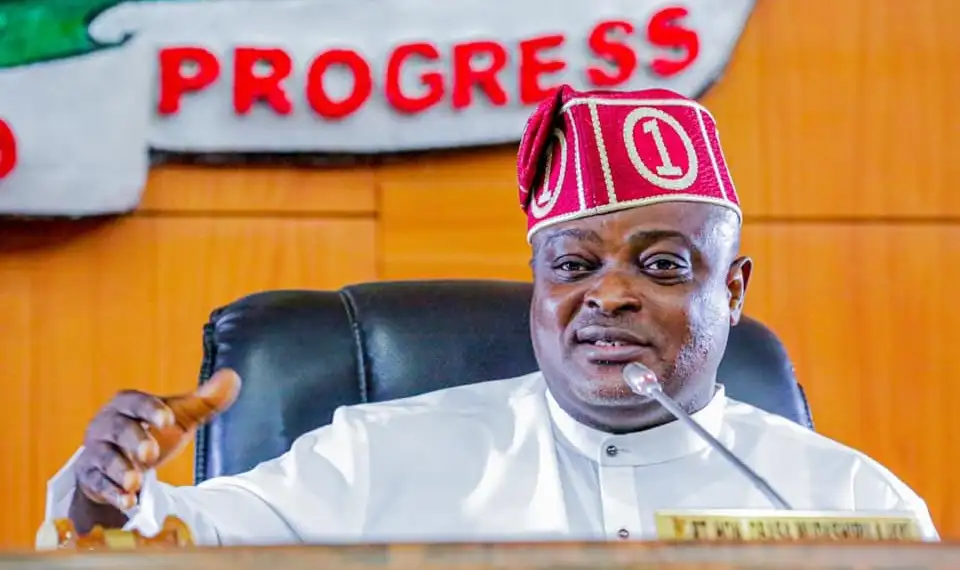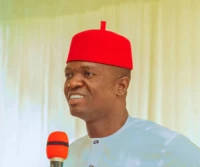In a dramatic turn of events on Monday, the Lagos State House of Assembly impeached its long-standing Speaker, Mudashiru Obasa, on charges of multiple statutory and financial infractions. This decisive action by the assembly members marks the end of a tumultuous tenure for Mr. Obasa, who has been at the center of numerous controversies over the years.
Replacing him is Lasbat Meranda, who previously served as the deputy speaker and chief whip of the House. Representing Apapa Constituency 1, Mrs. Meranda’s elevation to the speakership comes at a pivotal time, following intense scrutiny and public outcry over the mismanagement of state funds. The impeachment was swift, occurring while Mr. Obasa was reportedly in Atlanta, showcasing the urgency and determination of the assembly members to address the allegations against him.
The catalyst for this impeachment was a detailed report by The Gazette, which exposed that under Mr. Obasa’s leadership, an astounding N43.5 billion was withdrawn purportedly for backup vehicles for lawmakers. This revelation, among others, painted a picture of blatant financial mismanagement. This incident was not isolated; over the years, Mr. Obasa’s tenure has been shadowed by continuous allegations of fraud and political thuggery.
In 2020, investigations by The Gazette laid bare how Mr. Obasa allegedly funneled state funds into his personal companies and bank accounts. These reports, coupled with similar findings by Sahara Reporters regarding his extensive asset holdings in Lagos, led to a significant public and legal backlash. The Economic and Financial Crimes Commission (EFCC) was compelled to intervene, inviting Mr. Obasa for questioning. Despite the serious nature of these allegations, no charges were formally laid against him after his interactions with the EFCC, leaving many questions unanswered and public trust further eroded.
Mr. Obasa, who first assumed the speakership on June 8, 2015, during the administration of former Governor Akinwunmi Ambode, has been a controversial figure in Lagos politics. His speakership was marked not only by his legislative duties but also by his involvement in high-profile disputes and legal battles over financial transparency and governance ethics.
The impeachment of Mudashiru Obasa sends a strong message about the assembly’s commitment to accountability and the rule of law. It reflects a broader demand for transparency in how public funds are managed, especially in a state like Lagos, which is pivotal to Nigeria’s economic landscape. With Mrs. Meranda now at the helm, there is a cautious optimism among Lagosians for a new chapter in the House’s governance, one that hopefully prioritizes the welfare of the constituents over personal gain.
As this story unfolds, it will be crucial to monitor the steps taken by the new leadership to restore public confidence and ensure that the mechanisms of governance are truly serving the interests of Lagos State and its people.












Wow, can you believe the drama in Lagos State House of Assembly? Obasas impeachment is just the beginning. What a rollercoaster!
I cant believe Obasas downfall! Corruption finally catching up. Hope this sends a message to other officials. Accountability matters!
Do you think Obasas impeachment will bring positive change or just more political drama in Lagos? Curious to hear your thoughts!
I cant believe Obasas downfall! Do you think hes innocent or guilty? Corruption in politics is just never-ending drama.
Can you believe the drama in Lagos State House of Assembly? Corruption allegations flying left and right. What a mess!